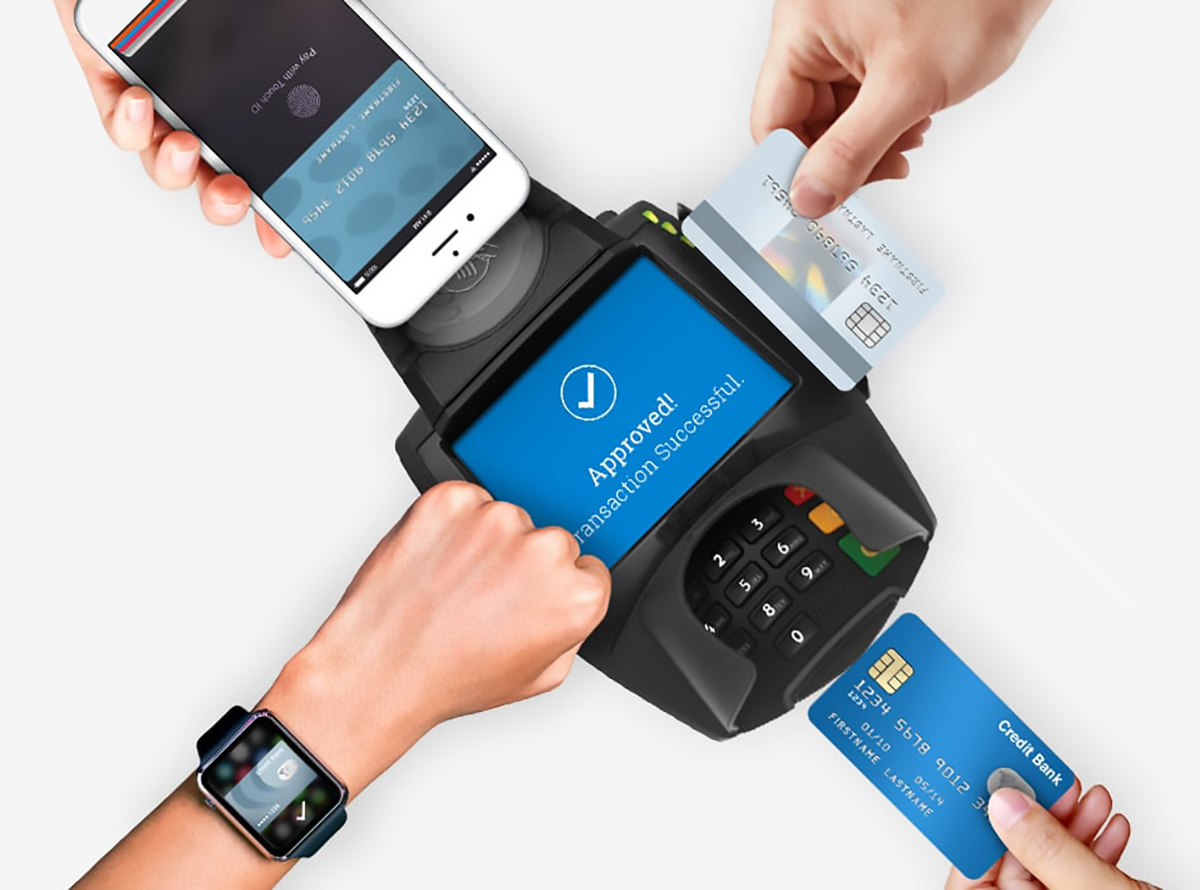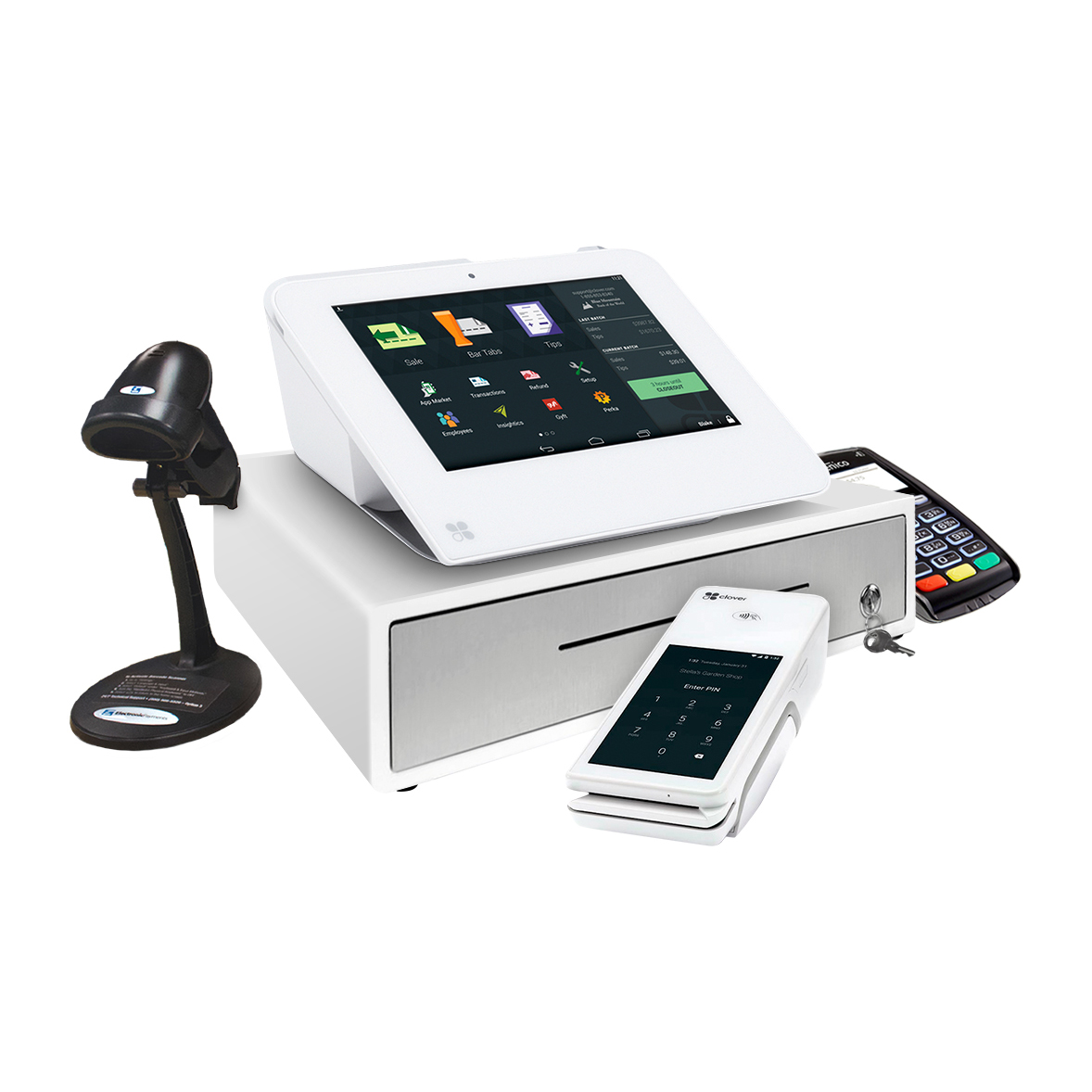Our cloud-based platform is so seamlessly integrated you would think it was part of your accounting software.





QuickBooks Credit Card Fees: A Breakdown
How to Minimize QuickBooks Credit Card Fees
- Encourage customers to use ACH transfers due to their lower fees.
- Negotiate your rates if your transaction volume is consistently high.
- Ensure most of your transactions are swiped, not keyed in, to enjoy lower fees.
The Impact of Fees on Your Business
Are There Hidden Costs?
What Are the Common Questions About QuickBooks Credit Card Fees?
- ACH payments take 2-5 business days to process, whereas credit card payments are faster.
- Check for legalities if passing fees to customers.
- Leverage QuickBooks tools for dispute management.

Understanding Intuit Credit Card Processing Fees
When it comes to hosting a robust financial ecosystem, Intuit stands out with its QuickBooks platform, which streamlines business operations. Intuit credit card processing fees are a critical consideration for businesses utilizing QuickBooks. These fees vary based on payment method and transaction type, ranging from 1% for ACH payments to 3.5% for manually entered transactions. Understanding these fees is essential for choosing the most cost-effective payment options.
Maximizing Benefits with QuickBooks Integration
Integrating credit card processing with QuickBooks, through POS Brokers, offers seamless financial management. As someone with over two decades in the industry, I've seen firsthand how the right integration can save time and reduce errors. With QuickBooks, payments are directly synced, allowing for real-time reconciliation and better cash flow management. Additionally, automated invoicing and customized billing cycles ensure efficiency, driving down the effective cost of Intuit credit card processing fees.
- Real-time financial data synchronization
- Automated invoicing and billing
- Efficient reconciliation processes
How to Optimize Processing Fees with Intuit
Lowering your Intuit credit card processing fees doesn't mean compromising service quality. Here are some strategies:
- Negotiate Better Rates: Work with merchant service providers to secure competitive rates.
- Use Level 2/3 Processing: This provides deeper data insights, reducing interchange fees for B2B transactions.
- Implement Cash Discounting: Encourage cash payments by offering discounted pricing.
Why Are Intuit Credit Card Processing Fees Important For QuickBooks Users?
Intuit credit card processing fees are crucial for QuickBooks users because they directly impact profitability. By minimizing these fees, businesses can allocate resources more effectively, whether reinvesting savings into growth or enhancing customer experiences. With QuickBooks' comprehensive suite, the integration of payment processing allows for insightful financial planning, helping to manage costs efficiently.
Addressing Common Concerns with Intuit Fees
The nuances of Intuit credit card processing fees can sometimes seem daunting. One prevalent concern is the variability of fees. It's important to note that these fees are contingent on transaction types, payment methods, and volume. As a seasoned professional in merchant services, I recommend regular reviews of transaction reports to identify trends and opportunities for cost savings. This proactive approach ensures that businesses are always operating at the most economical level possible.
Additionally, businesses often worry about hidden fees. Transparency is a key focus in our efforts to provide reliable service. By maintaining clear communication and consistent fee structures, we aim to build trust and clarity for our clients.
Breakdown of QuickBooks Online Fees
When deciding on the right accounting software for your business, understanding the various QuickBooks Online fees is crucial. QuickBooks Online offers a range of pricing tiers to accommodate different business needs, from the Simple Start plan at $35 per month to the Advanced plan at $235 per month. Each tier provides increasingly complex features, such as project profitability tracking and workflow automation.
Many businesses find the flexibility of QuickBooks Online appealing, as it allows them to upgrade or downgrade plans without incurring termination fees. Importantly, the pricing structure is designed to support businesses of varying sizes, with options to add multiple users. For instance, the Plus plan supports up to 5 users, making it a solid choice for growing teams.
It's also worth noting that first-time users often benefit from promotional discounts, such as a free 30-day trial or reduced-rate introductory periods. By leveraging these offers, businesses can explore the platform's capabilities without an immediate financial commitment, helping them better manage their expenses.
How to Optimize QuickBooks Online Fees
Over my 20-year career in payment processing, I've observed countless businesses grapple with optimizing QuickBooks Online fees. One of the most effective strategies is ensuring seamless integration with merchant services through our solutions at The POS Brokers. By doing so, businesses benefit from lower processing rates and improved cash flow management.
Next, consider utilizing tools like Biller Genie for automated invoicing and reconciliation. Automation not only reduces manual errors but also improves efficiency, saving your business time and money in the long run. Many of my clients have significantly cut their administrative overhead by integrating such tools into their QuickBooks setup.
An often-overlooked aspect is the negotiation of credit card processing fees. With expertise in interchange optimization, we help businesses negotiate better rates, which can lead to substantial savings over time. By focusing on these elements, you can transform QuickBooks Online from a simple accounting tool into a comprehensive financial management system.
Finally, regularly review your account settings and plan features. As your business evolves, so too should your software capabilities. By periodically reassessing your needs, you ensure that you're only paying for services that directly benefit your operations.
What Are the Alternatives to QuickBooks Online?
While QuickBooks Online is popular, it's not the only option available. Many businesses, especially smaller ones or those seeking simpler interfaces, explore alternatives like Wave and Xero. These platforms offer competitive pricing structures that can appeal to budget-conscious entrepreneurs.
Wave, for example, provides a free plan that can be highly beneficial for solo entrepreneurs or startups with basic accounting needs. It offers essential features such as invoicing and expense tracking at no cost. For more advanced requirements, Wave offers paid plans to accommodate growing businesses.
Similarly, Xero is renowned for its user-friendly design and comprehensive feature set. Starting at just $20 per month, Xero offers unlimited users in all its plans, making it an attractive choice for teams looking to collaborate seamlessly without additional user fees. Additionally, the platform supports a wide range of financial processes including payroll and inventory management.
How Can QuickBooks Online Fees Be Reduced?
Reducing QuickBooks Online fees starts with selecting the right plan based on your current needs. Here are a few steps to guide you:
- Evaluate Your Features: Determine which features are essential for your business operations. Opt for a plan that aligns with these necessities to avoid overpaying for unused capabilities.
- Leverage Promotions: Take advantage of promotional offers. These often include significant discounts for new users or extended free trials, providing an opportunity to test the software thoroughly before committing.
- Consider Integration Benefits: By integrating QuickBooks with other financial management tools, you can streamline processes and potentially offset service costs through efficiency gains.
While QuickBooks Online fees might seem daunting at first glance, a careful assessment of your business requirements and strategic use of available promotions can lead to significant cost savings.
How Can You Handle QuickBooks Payment Issues?
If you encounter payment issues with QuickBooks, there are several troubleshooting steps you can follow to resolve them effectively. Firstly, verify that your payment information is up-to-date in the system, as outdated card details are a common source of problems.
Next, check for any service outages or software updates that might affect payment processing. QuickBooks frequently updates its platform, and sometimes payments can be temporarily disrupted during these periods. Being aware of scheduled maintenance can prevent unnecessary confusion.
In cases where issues persist, reaching out to QuickBooks customer support is advisable. They offer several support channels, including phone and chat, that can help resolve payment-related concerns. My experience has shown that contacting their support team can often expedite solutions, especially if you have a complex query that requires detailed assistance.

What factors impact the fees associated with credit card transactions in QuickBooks?
When it comes to QuickBooks credit card transactions, several factors play into the fees you'll encounter. These can include the method of transaction (whether it's swiped, invoiced, or keyed in), the volume of transactions your business processes, and sometimes even the type of business you run. For example, swiped transactions generally have lower fees compared to manually keyed-in ones because they're considered less risky. Imagine having a retail store where most transactions are swiped; this could significantly lower your costs compared to a freelance business that keys in transactions manually. Exploring these details ahead of time can prepare you to make strategic decisions on how to process payments more cost-effectively.
How can businesses reduce their credit card processing fees with QuickBooks?
Reducing your credit card processing fees within QuickBooks is all about leveraging strategies that align with your business model. Encouraging customers to use ACH transfers, which typically have lower fees, is one approach. Additionally, negotiating rates with your service provider can lead to better terms, especially if you handle a high volume of transactions. Consider also switching to swiped transactions whenever possible to reduce fee margins. An anecdote from one of our clients: by transitioning 50% of their sales to swiped transactions, they saved over $500 monthly. Making such tactical shifts can help bolster your bottom line significantly over time.
Are there hidden costs in using QuickBooks for credit card transactions?
While QuickBooks strives for transparency, there are nuances that can catch users off guard if not carefully managed. For instance, fees related to chargebacks or international transactions might not be clearly visible upfront. Instant deposits, although convenient, incur additional costs. Regularly reviewing your statements for such charges can prevent unwelcome surprises. I once advised a business owner to scrutinize their monthly statements, and they uncovered fees totaling over $1,000 annually they hadn't anticipated. By staying vigilant, you can ensure you're only paying for what you actually need and use.
Is it permissible to pass QuickBooks credit card fees on to customers?
The question of passing credit card fees onto customers is common and can be legally complex depending on your location. In many states, you can indeed pass these fees to customers, but it typically requires transparency and clear communication. Ensuring you are compliant with local laws and openly discussing these fees with customers can prevent any potential misunderstandings. Consider adding a note to your invoices or at the point of sale to inform your customers about the fee. Many businesses choose to do this to maintain profitability while keeping their pricing structures transparent.
How do processing fees affect a business's financial health when using QuickBooks?
Processing fees can significantly impact a business's financial health by eating into profit margins. For example, a business processing $100,000 annually with an average fee rate of 2.9% could lose $2,900 just to processing costs. Reviewing the impact of these fees regularly can help in adjusting pricing models or choosing more cost-effective payment methods. Utilizing QuickBooks' analytics tools to track these impacts can provide insights into how best to optimize your payment practices. Think of it like managing a household budget; knowing where every penny goes allows for better financial decisions.
What is essential to know about Intuit credit card processing fees for QuickBooks users?
Intuit credit card processing fees are crucial for QuickBooks users because they influence the overall cost-effectiveness of accepting credit card payments. These fees vary, typically ranging from 1% for ACH to 3.5% for manually keyed-in transactions. Understanding these fees helps in selecting the most cost-efficient payment options for your business. For instance, if most transactions in your business are B2B, employing Level 2/3 processing could reduce interchange fees significantly. This knowledge not only streamlines your payment processes but potentially improves your profitability.
What are some alternatives to QuickBooks Online for businesses considering their payment processing options?
While QuickBooks Online is a popular choice, alternatives like Wave and Xero offer competitive features and pricing that may better suit certain business models. Wave is an excellent option for small businesses and freelancers as it provides essential accounting features at no cost. Xero, on the other hand, is praised for its user-friendly interface and offers unlimited users, which can be an advantage for growing teams. These platforms can be ideal for businesses that either want a simpler solution or need a pricing structure that aligns better with their budget. Exploring different tools helps ensure you're getting the most out of your accounting software without overspending.
How can businesses optimize their QuickBooks Online fees?
Optimizing QuickBooks Online fees revolves around choosing the right plan for your specific needs and integrating tools that maximize efficiency. Selecting only the plan features that your business utilizes frequently will prevent you from overspending. Additionally, taking advantage of promotions and discounts for new users can lower initial costs. For example, using software like Biller Genie to automate invoicing and reconciliation can save both time and administrative expense. Regularly reassessing your business requirements in conjunction with QuickBooks' capabilities ensures you're not paying for unused features, thus optimizing your expenditure effectively.
How can common payment issues be resolved in QuickBooks?
Handling payment issues in QuickBooks involves a series of straightforward steps. Start by ensuring all payment information is accurate and up-to-date to prevent common transaction errors. Check for any QuickBooks service updates that might temporarily affect processing. If payments are still problematic, contacting QuickBooks' customer support can expedite finding a solution, as their team is well-equipped to handle complex queries. One client once faced repeated payment failures due to an outdated card on file--updating that information resolved the issue almost instantly. Taking these proactive steps ensures smoother transactions and maintains trust with your clients.
Resources
- QuickBooks Intuit - Official website for QuickBooks, providing information on their products and services.
- Xero - Homepage of Xero, an alternative to QuickBooks Online, offering comprehensive accounting solutions.
- Wave - Official website of Wave, a free accounting software for small businesses and freelancers.
- Small Business Administration (SBA) - The SBA provides resources and support for small businesses in the United States.
- U.S. Department of Education - Official website of the U.S. Department of Education, offering information on educational resources.
Contactless Payments!
Ensure your safety with the convenience of contactless payments. Our wide range of devices offers seamless contactless payment options, along with mobile contactless alternatives for hassle-free curbside pickups and deliveries. Contact us today for further details and stay secure.
Chip Card
Swipe Card
Apple Watch
E-Check
NFC Phone
 Quick Tip
Quick Tip
38% of new business owners make the wrong choice when selecting a POS for their startup.
Let Us Help You Choose the Right POS System and Save You the Hassle!

Contactless Payments!
Stay safe with contactless payments. All of our devices have contactless payment options and mobile contactless options for curbside pickups and deliveries. Call now for more information.
Chip Card
Swipe Card
Apple Watch
E-Check
NFC Phone
Ready to talk to an advisor?
Complete the form or call us now to talk to a live representative.
“The POS Brokers are amazing. They answered all our questions and explained everything clearly.”
Retail Owner






Reviews
There are no reviews yet.